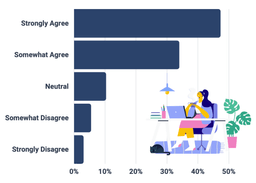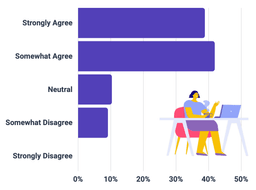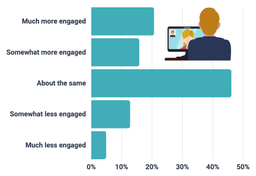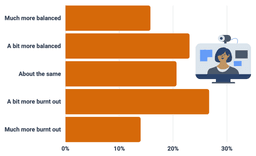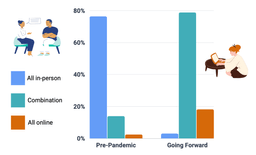It’s been a year since the COVID-19 pandemic changed everything. More specifically, the practice of psychotherapy has largely evolved as many therapists have moved their practices online in response to the pandemic. What will this mean for the future of therapy?
We reached out to therapists directly to better understand how clinicians and their practices have been impacted by the pandemic, and we received 165 submissions. Here are the takeaways:
1. Overall, therapists and their clients enjoy online therapy.
Here are therapists’ responses to the prompt “Overall, I enjoy online therapy.”
And here are therapists’ responses to the prompt “Overall, my clients enjoy online therapy.”
2. Overall, therapists are feeling engaged in their psychotherapy work.
Therapists answered, “since before the pandemic, I am feeling…”
3. Some therapists are feeling more balanced, whereas others are feeling more burnt out.
Here are therapists’ responses to the prompt “since before the pandemic, I am feeling…”
This distribution of responses may be a reflection of the broader theme that has emerged out of pandemic times: for some people, the ability to work from home has helped them to feel more balanced. For many others, the pandemic has caused net stress and burnout.
4. Therapists will continue to offer online therapy after the pandemic.
On the left is how therapists reported they were practicing before the pandemic. As you can see, the majority of therapists were practicing exclusively in-person.
On the right is therapists’ response to the following prompt: “Assuming insurance companies will provide telehealth coverage for mental health services beyond the pandemic, I would prefer my future practice to be…”
Overwhelmingly, therapists report that they would prefer to offer both online and in-person therapy for their clients beyond the pandemic.
You Choose How You Practice at GLPG
Online. In-person. Or a combination of both. You provide the care. We provide the rest.
Interested in a career at GLPG? Click here to learn more.

